Catarina Craveiro - at the right moment
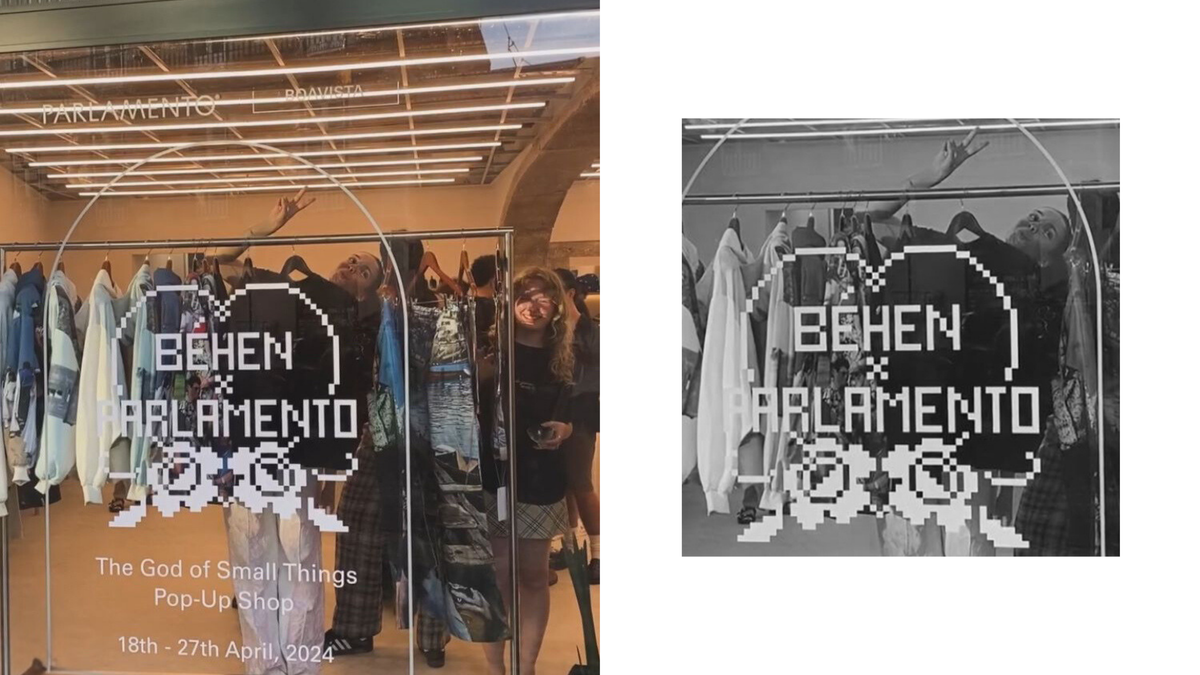
I welcome you to the first edition of a series of articles dedicated to the Community around The Fashion Standup. To start this anthology of stories I chose a colleague and friend from college who proved to be one of the biggest supporters of this project.
Obviously, that wasn't the only reason I decided to talk to Catarina Craveiro, since we graduated from our Fashion Design BA I've been following her journey on social media and I've always admired the work she's been developing as a studio assistant at Béhen. An independent Portuguese brand, based on ethical fashion design and with principles of social and environmental responsibility, which revives traditions and transforms the most typical textiles into desirable and sustainable modern pieces, working closely with artisans and local communities.
Fortunately, Joana Duarte has participated in several conferences, being frequently interviewed for the work she develops. And, as no article written about independent fashion is ever enough, today we're going to meet the brand's studio assistant.
Independence has never been more necessary than it is today. For it to continue to exist in the Fashion System, there must be a community that makes it happen. As a contribution to changing the narrative and the pre-conceived idea of many students that only the founding designers of a brand have a real impact on Fashion, the time has come to reveal to you the most important points of my conversation with Catarina. Even if, as Nara Aziza Smith says, it only inspires one person, it was worth it.
When she looks back, from the present moment to the end of her degree and, after her almost three-year career at Béhen, she considers that she took advantage of the right moment at the right time. But she doesn't forget that the responsibility of working hard and being dedicated has always been a differentiator. The designer does not hesitate to recognize her own capabilities or to detect them in her peers:
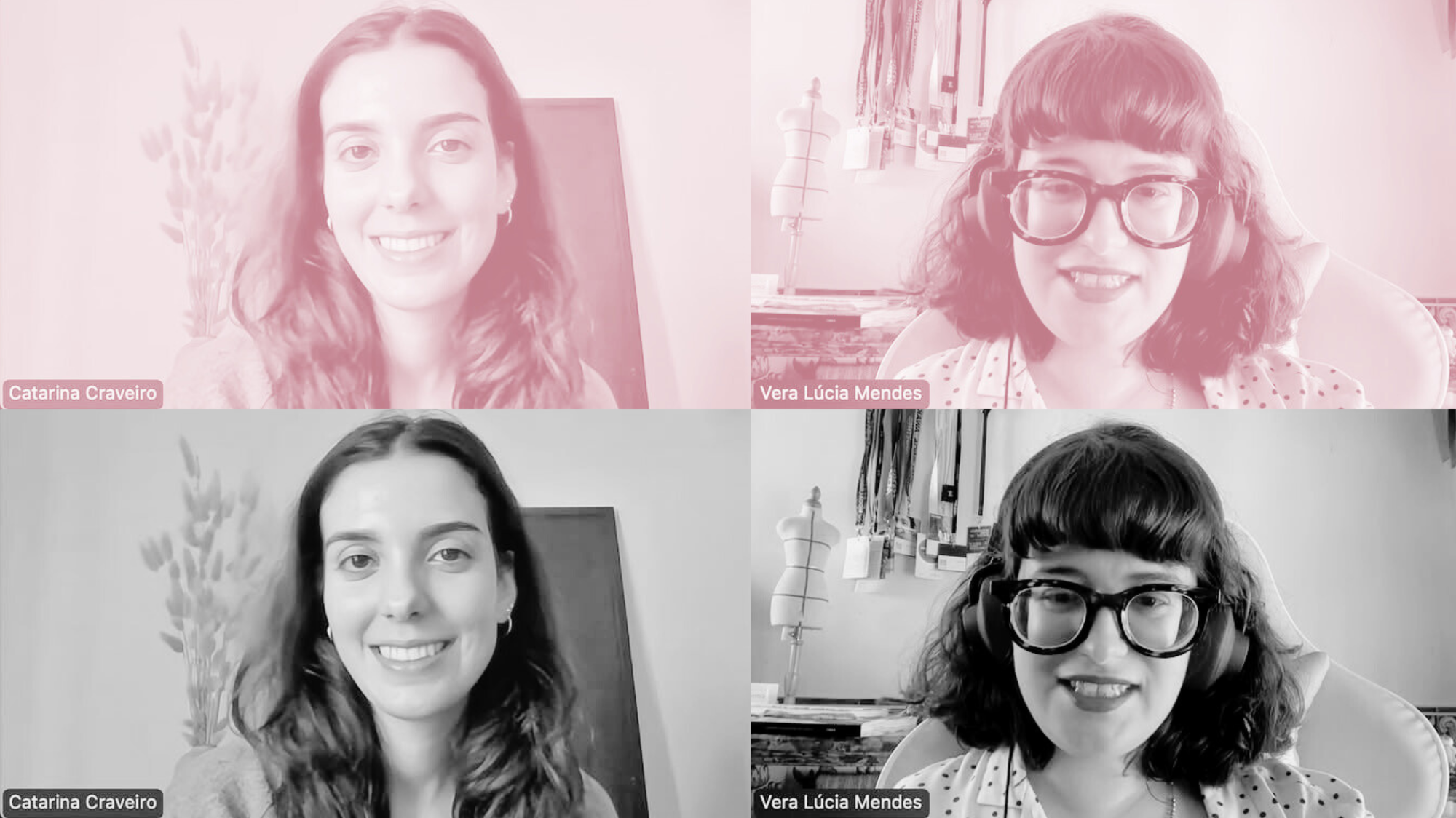
“A lot of work. It’s been like that since the beginning, I think we always have this weight, I don’t know if it’s responsibility I would say, and that’s why I think I can speak for myself, but I think for you too we always felt this weight of responsibility to work to get where we wanted and what our goals were.”
She always felt that she had a lot to learn and argues that this skill should never abandon a fashion professional. She does not deny that she has obviously become more mature throughout her career. And it didn't take long since she entered university to have the reality check that overnight success doesn't exist.
For Catarina, having a focus/area of expertise has always been an asset. In her case, pattern making awas the area she focused on. Thanks to this learning, she found a mentor to whom she is very grateful, her teacher Helena Quinan, at Modatex. Just like Joana Duarte, who, in the life of our protagonist, plays different roles from boss to friend, without forgetting the mentor aspect of this designer and talented pattern maker.
At 24 years old, she is responsible for pattern making at Béhen and guiding the interns who come through the studio. Despite the age, the experience is more than enough, so there is no doubt that it is difficult to convert an internship into a permanent position. Since, for small brands, a new position should mean a great added value that is brought to the company.
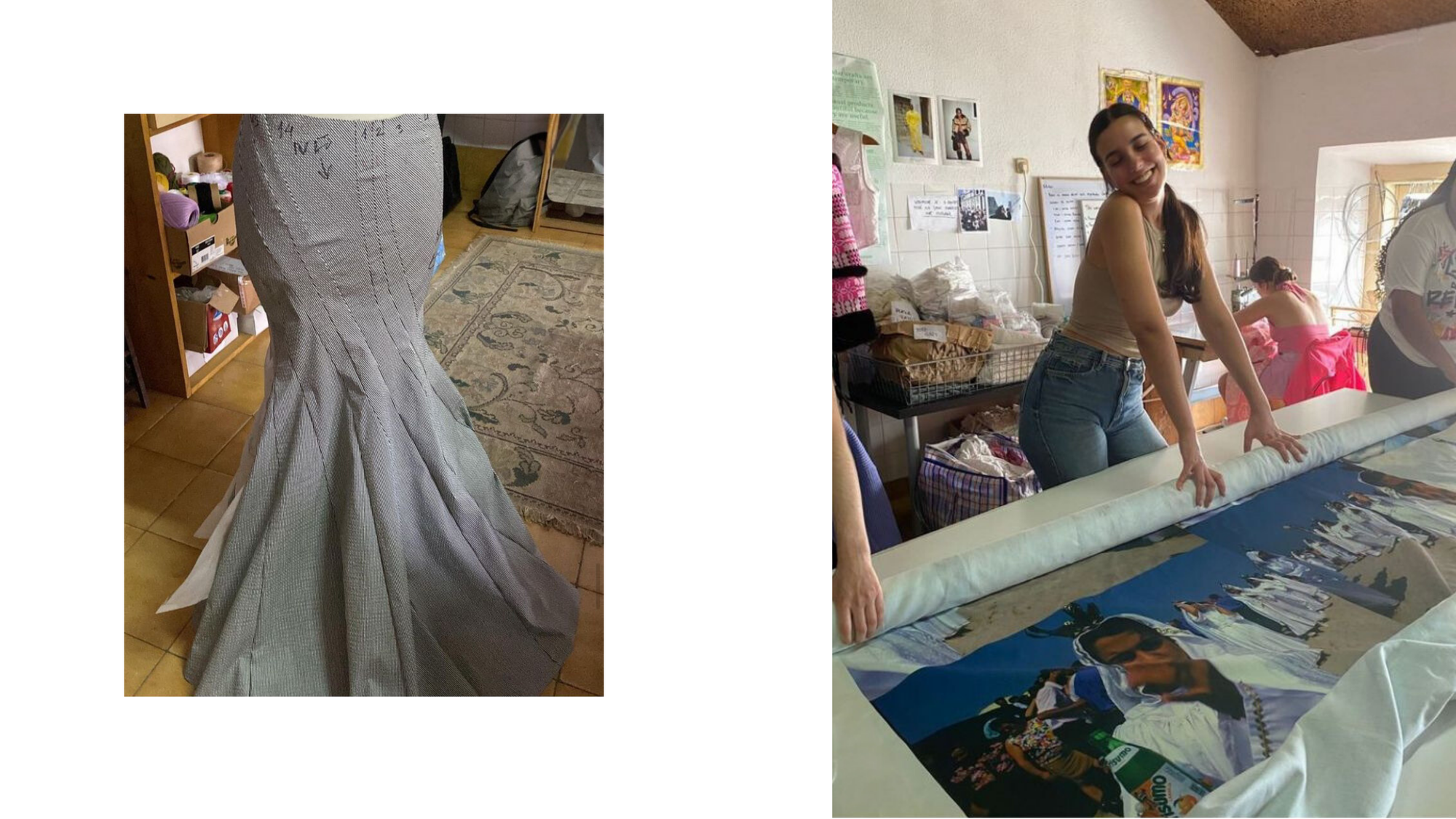
One of the difficulties she highlights in her daily activity is conveying the idea that corresponds to the reality that working in Fashion, or in an independent Fashion brand, is not synonymous with spending the whole day designing or making patterns. The reality is that working in Fashion, on a daily basis, is full of mundane tasks. Because anyone who does an internship or is in the position of assistant, in a company that has a megalomaniac size, must be prepared, without prejudice, to do a little bit of everything.
For our interlocutor, serving coffee has never been a common experience. Doing a machine maintenance or keeping the studio clean are tasks she takes as seriously as the most complex mold. Perhaps this more truthful idea of reality is something that has to be resolved in the Academy, since no one is born taught and in fact many young people believe that their imagination faithfully corresponds to reality.
On the other hand, it is not rare that you have to go against the methodologies that were learned in college to arrive at new solutions to the problems that arise. Problems that can arise from creativity, from new materials that were unknown until then. Or, they are inherent to the exorbitant speed of Fashion itself, where issues arise that are so disruptive that the recipe for the solution had not been given to us. You have to mix the various tools and a vast set of skills with luck…
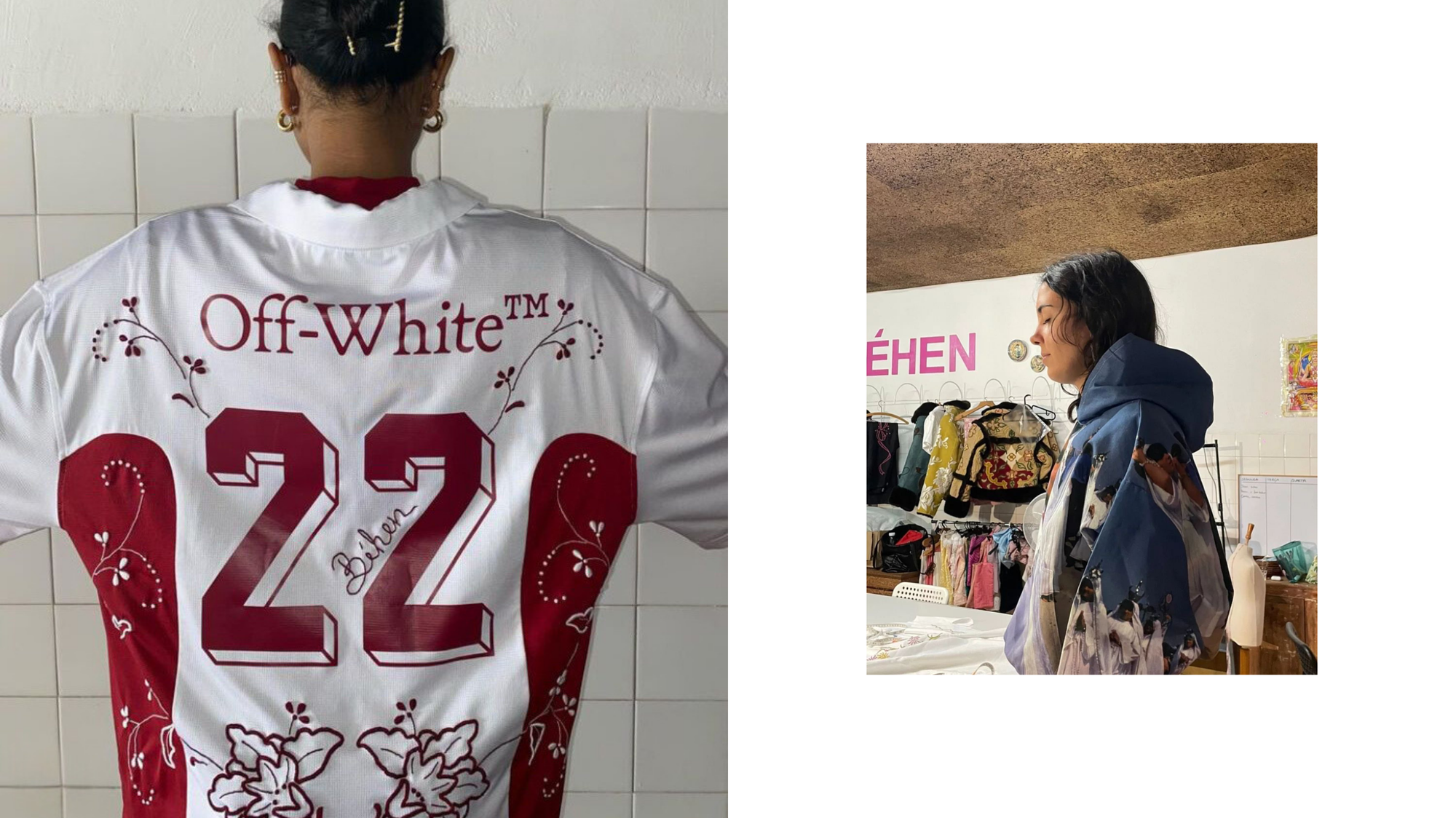
As unhealthy as it may seem, it is impossible to deny that for those who work in Fashion, with no exceptions among the participants in the conversation that was the basis of this article, their work is a large part of their life. Catarina Craveiro knows that, although there is no “forever”, she will always take Béhen with her. And she believes that her fingerprint will remain on the brand, according to her, even if only because of her patterns. But we all know it will be much more than that.
At the end of our conversation we had a slightly frantic dialogue about our views on the now and the future of Fashion. Numerous conclusions could be drawn from this dialogue, but these were on the side of the recipients of this text. So we started with what Catarina would say to new aspiring fashion designers, who are possibly still studying:
-Look, I would tell them what I tell all the girls that pass us by. I think that in Fashion, at least in Portugal, we are still very focused on the design part, which is undoubtedly a very important part. But we still don't have response to give to all the people who want to be fashion designers, and unless they really have the ability and privilege to be able to study abroad and join brands that are much bigger than what they we see here in Portugal. I think the ideal is to focus on this more technical part. In other words, it's not just pattern making there are so many things that people, when they're at university, don't even think about, from technical drawings, that is, someone has to make the technical drawings, someone has to create types of fasteners...
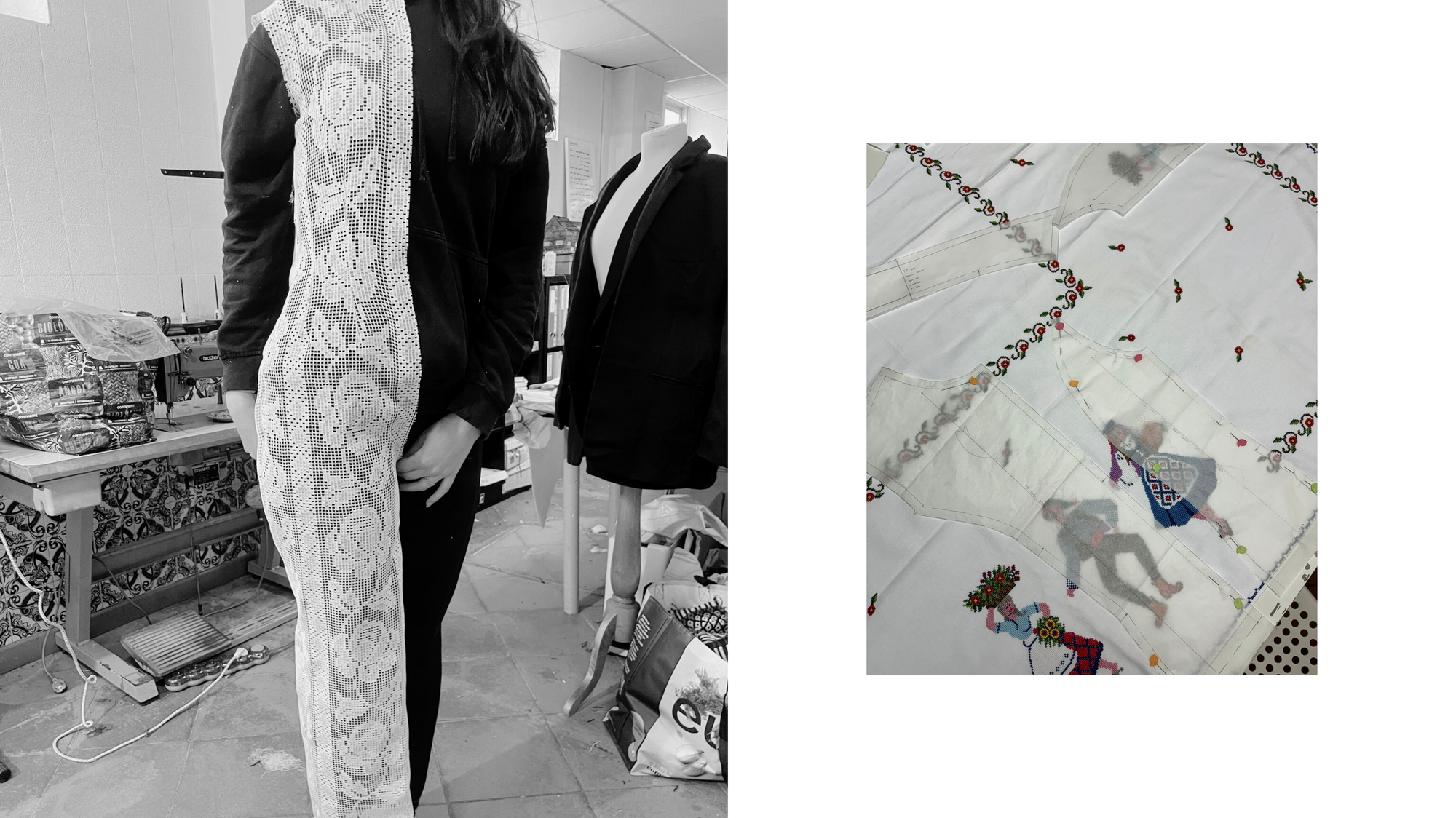
-…someone has to write about what is done.
-Someone has to write, take the photo, style it, I don't say (…) I think this gap has already been filled. But then the editorial part, that is, organizing events...
-Or even promotional, too.
-Exactly, in other words, there are so many things linked to fashion... making garments (costumes) for the theater, garments for films, there are so many opportunities that people really focus on being fashion designers, but they forget that fashion designers don't do anything alone. .. You don't live alone, right? He doesn't live alone, he doesn't work alone, a fashion designer alone can make maybe five pieces, but going from there to making 100, I don't think so, alone is impossible. And that's it, there's so much to explore, even part of making the prints, the dyeing...
-And don't you think that... This issue of wanting to be a designer... don't you think it has much to do with this idea that only the designer is recognized, just...
-Yes, of course there is still a lot of this stigma, especially in the sewing area, as there is a lack of young people in this part of sewing, or even more linked to Béhen, the embroidery part, more artisanal things. But, of course, over time, I hope that this changes a lot, and people really are valued in a different way, but I also think that there is a lot of stigma and that in reality it is not so linear, I think you can have a good career in any other field, other than being a fashion designer.
-And that ends up being fashionable as well?
-Yes, even better than if I were a designer and had a brand, because the truth is that brands, I see more and more, are not easy to sustain or manage, especially in a country like ours, right? Unless you have a lot of initial investment, which I don't think is the case for most designers, is it?
-Exactly.
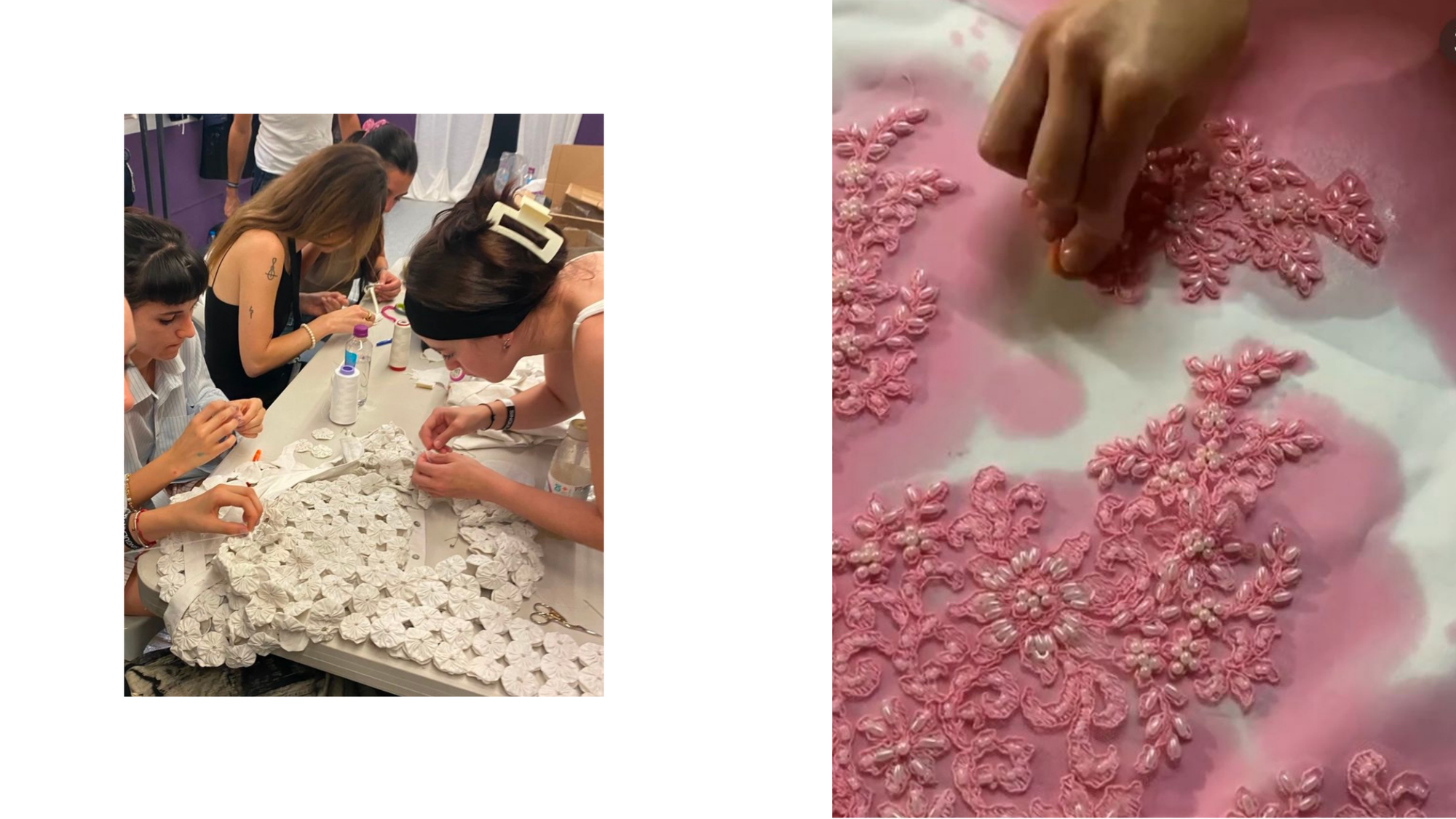
-It's very difficult to boost a brand like that.
-And then even the investment, either you have to have a loan, or unless, you have “rich parents” who give you the money, or you have to return the investment, or you have to pay back the loan, or you have n things.
-Yes, people cannot forget that actually having a brand is having a business, right? It's a company that you have to manage, and if you have people under your care, it's not even more so, because you have to pay salaries, you have to pay the place where you have the studio, in other words, it's easy to have a brand small, but then making a living from the brand takes a big leap, right?
-Exactly.
We'd love for you to join us in this conversation, in the comments or on social media.
See you soon!
